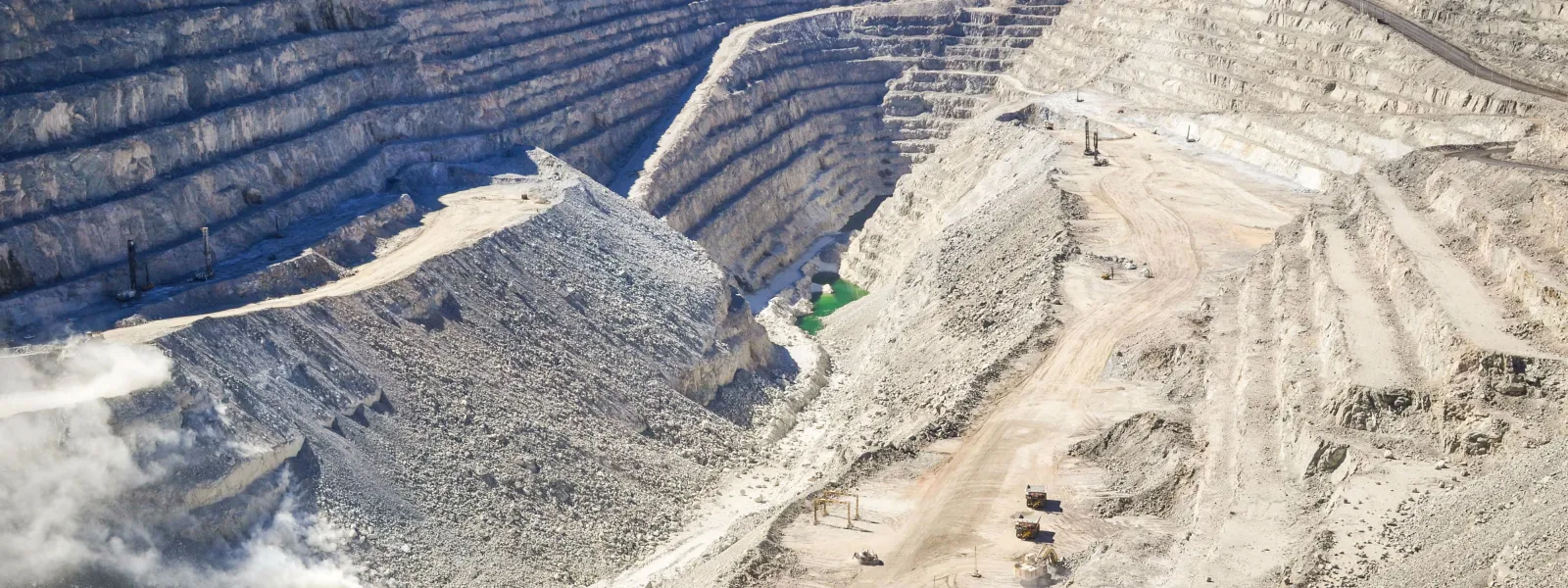
Project
Jbdodane / FlickrOffering communities scientific support to stop mining’s damages
Mining is an economic activity with serious environmental costs. Often, communities located near mining projects do not have access to truthful, complete and objective information on the harms and benefits of extractive industries.
This is compounded by the pollution and water depletion such activities cause in nearby rivers, lakes and other water sources. These risks often occur when mining projects are not adequately evaluated before being approved. And, too often, environmental impact assessments are not based on the best available scientific information.
Now more than ever, we must bridge the information gap between communities and the mining projects that affect them.
Review our Mining Resources Page
Learn About Our Mining Webinar Series (in Spanish)
Partners:
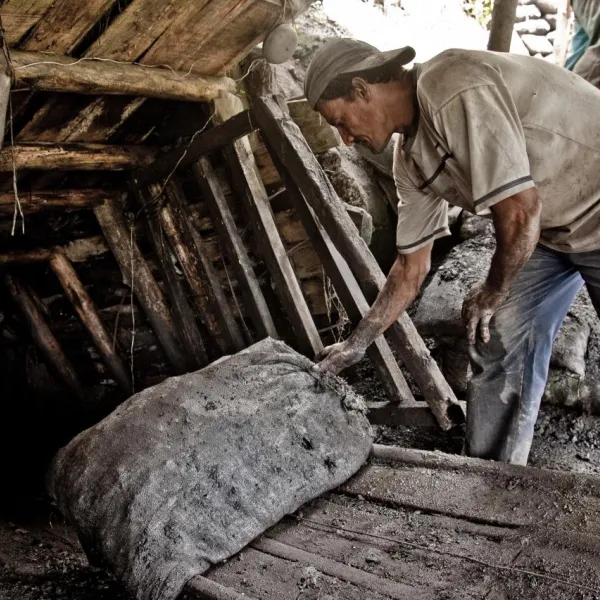
Related projects
Latest News
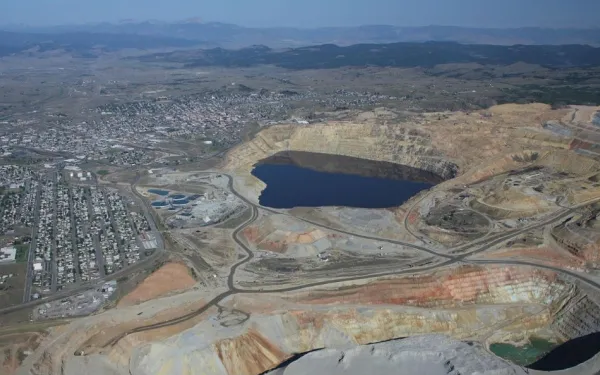
Understanding the true costs of mining in Latin America
Would you accept a business deal that offered you limited profits and infinite expenses? In Latin America, mining is strongly promoted as a source economic advancement. Governments tout extraction as a source of employment and funding for new hospitals, schools, roads and other infrastructure. Up to that point, it sounds like good business. But that’s only half of the story. What they don’t tell you about—in press releases or Environmental Impact Studies—is all of mining’s downsides, including impacts in perpetuity, environmental damage that persists for centuries or even millennia. Among mining’s many damages—rarely mentioned to the communities living alongside the projects—two stand out: Severe landscape modifications: for example, the excavation of an open-pit mine on a mountain or the filling of a valley with mining waste. Contamination of water sources: for example, acid generation and the release of toxic metals into reach rivers, streams and other water sources; or the increase of nitrates and ammonia derived from explosives. In countries like the United States, damages are discussed in environmental assessment processes and legislation exists on both assessment and mitigation mechanisms. In Latin America, promoters of large mining projects often fail to understand that the long-term costs of these mega-projects far outweigh their benefits, and extend far beyond the mine’s active life cycle. After their closure and abandonment, open-pit mines need constant maintenance to minimize the risk of collapse (which never disappears). Water sources must be continuously monitored and treated to avoid toxic contamination. Who will pay for mining’s damages? It’s often difficult to know who must assume mining’s costs because it depends on several different elements: legal frameworks, institutional strength, and social factors. In many countries, governments require mining companies to build and install monitoring and remediation systems (wells, water treatment plants and drains, for example). In other cases, they are asked to pay for the operating costs of these systems for a period of time. The most demanding countries request remediation insurance (i.e. Reclamation Bonds), as well as a contribution to financial funds whose yields will be destined for such measures. This is the case of the Superfund, which manages the remediation of approximately 1,341 industrial sites across the United States. But even so, these policies often underestimate long-term costs, leaving tax papers to cover the rest of the expense. According to the Center for Science in Public Participation, the government would have to pay between $3.8 and $20 billion dollars to remediate the damages of metal mines in the western United States. In other countries, environmental waste from mining doesn’t receive much attention. In Canada—often cited as an example to follow by governments of the region—the Tulsequah Chief mine in British Columbia has been releasing untreated acidic waters since 1957. Mining in Latin America Although many Latin American nations have regulations related to mining, most lack specific laws establishing standardized procedures for monitoring and repairing its damages. Some nations, like Bolivia and Colombia, even lack a legal definition for Mining Environmental Liability or debt for environmental damage. Faced with weak regulation, the closure of a mine is accompanied by isolated and ineffective actions—like simply planting greenery in the affected area. Since it’s not clear who should be held responsible, the few monitoring and remediation actions that exist often end up being abandoned. Another important factor in the region is that environmental damage comes not just from legal mining, but also from illegal and—in the case of Colombia, where mining’s profits are being used to fuel conflict—even criminal mining activities. In Chile, environmental deterioration is largely the product of legal metal mines that have been abandoned. In Bolivia it is most often the result of artisanal mining and cooperatives. In Colombia, illegal and small-scale mining spills mercury into the rivers. In Peru, gold mining causes serious damage to human health and the environment. Throughout Latin America, mining’s historical damages can be found in mineral deposits that date from the colonial age… yet our resources continue to be exploited. Why prevention is key The permanent scars mining leaves behind require constant attention and a level of financing that is impossible to guarantee over time. And given their severity, it’s only possible to partially mitigate, not completely remediate, the most serious damages. That’s why we’re promoting prevention, rather than remediation. Hand-in-hand with local organizations and communities, we’re working to ensure that mining projects are subject to adequate evaluation processes before they’re authorized, and that the risks they imply for communities and the environment are well understood. We advocate for evaluation based on the best available scientific information; we ask that it contemplate alternatives and be carried out independently to guarantee objective results. If the analysis finds that a project will generate perpetual damages that cannot be adequately managed, it must be rejected. We want decision-makers to understand: hard rock mining is not always good business and it always causes environmental harm. We’ll continue working to ensure governments across Latin America understand that fact.
Read more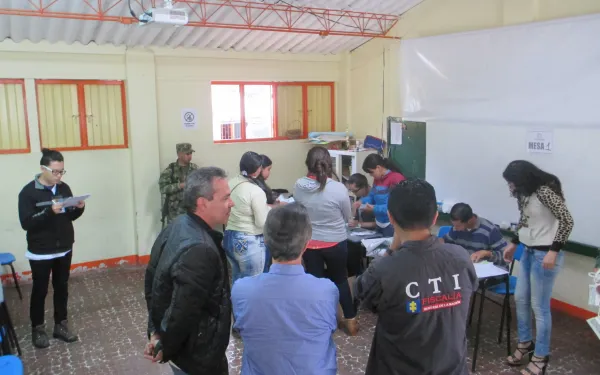
Victory in Colombia: Citizens Vote to Ban Mining in their Territory
On March 26, 2017, 98% of voters in Cajamarca, Colombia decisively rejected mining in their territory. The results of the referendum (or “popular consultation”) are binding under Colombian law. Now municipal authorities must issue regulations to implement the ban. AIDA was part of the legal team that advised the Cajamarca community and developed a strategy, including the referendum, to stop a proposed mine that threatens to pollute the water supply. AngloGold Ashanti was in the exploration phase of a project called La Colosa (the Collosus)—aptly named, because it would be among the world’s 10 largest open-pit gold mines, the second-largest in Latin America. In a country coming out of a 50-year civil war, the referendum is a victory not only for the environment, but also for democracy. Banning mining through popular consultation demonstrates a commitment to solving environmental conflicts in a peaceful and participatory manner. It also allows citizens to exercise their human right to have a voice in public issues that affect them—a key element of true democracy—and to safeguard their human right to a healthy environment.
Read more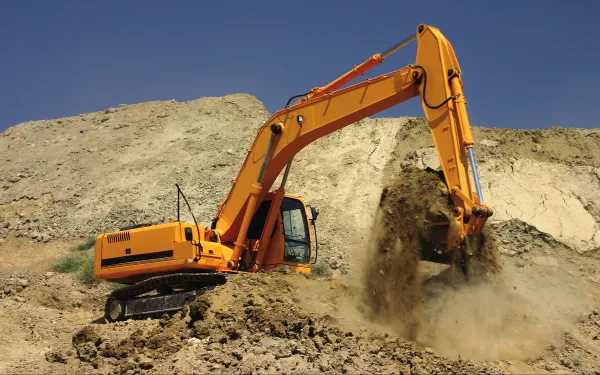
Open Letter on Mining to Canadian Prime Minister Trudeau
Excerpt: As activists, Latin American organizations and networks, along with international groups and organizations that have partners in Latin America, we are aware of and concerned about the human rights violations committed by Canadian mining companies operating in the region. On the basis of our experience, we offer the following observations and recommendations, as we share certain universal principles of human rights and justice that transcend borders. ... In light of early indications of concern for human rights from your administration, we urge the adoption of workable measures to promote legislative and administrative reforms that will more effectively regulate the operations of Canadian mining companies around the world. In particular, we recommend an immediate change in existing policies in order to: Ensure Canadian mining companies operating in Latin America do so in conformity with the international human rights standards established in treaties, which apply to both host countries and to Canada. In recognition of the increasing number of mining conflicts in the region, it is vital that the Canadian government and Canadian mining companies respect the rights of Indigenous communities to self- determination and to free, prior, and informed consent before any mining activities are undertaken on their territories. Respect the decisions of numerous communities, Indigenous and non-Indigenous, who have said no to large-scale mining because of its severe damaging impacts on the environment and social wellbeing. Implement the recommendations made by the Standing Committee on Foreign Affairs and International Trade in 2005. End Canadian intervention and the provision of any kind of governmental support, be it through overseas development aid, trade, and investment agreements, public financing or technical assistance, or diplomacy that seeks to influence the adoption or modification of regulatory frameworks in recipient countries for extractive projects. Incorporate international human rights and transparency standards in the regulation of credit agencies and public and private investment that finance extractive activities and impose safeguards on companies that receive state subsidies. Guarantee effective access to Canadian courts so that victims of human rights violations caused by Canadian businesses abroad can obtain justice, truth, and reparations. Create objective and impartial mechanisms to effectively monitor and investigate complaints of individual and collective human rights violations in connection with Canadian mining companies abroad. These mechanisms should be designed in conformity with the Paris Principles regarding the status and functions of national human rights institutions. End the pursuit of free trade and investment agreements that favor the protection and promotion of Canadian mining companies over individual and collective human rights, as well as environmental protection. Refrain from promoting international arbitration mechanisms, which is a powerful tool to shield foreign investments that profit from the absence of effective accountability measures aimed at preventing human rights violations. After many years of a lack of will to dialogue and an absence of critical self-evaluation by previous governments, we are hopeful that your commitment to human rights will lead to measures that hold state agencies and corporations to account and prevent further abuses by Canadian mining companies operating abroad. Such measures would earn Canada greater recognition as a nation that respects human rights.
Read more